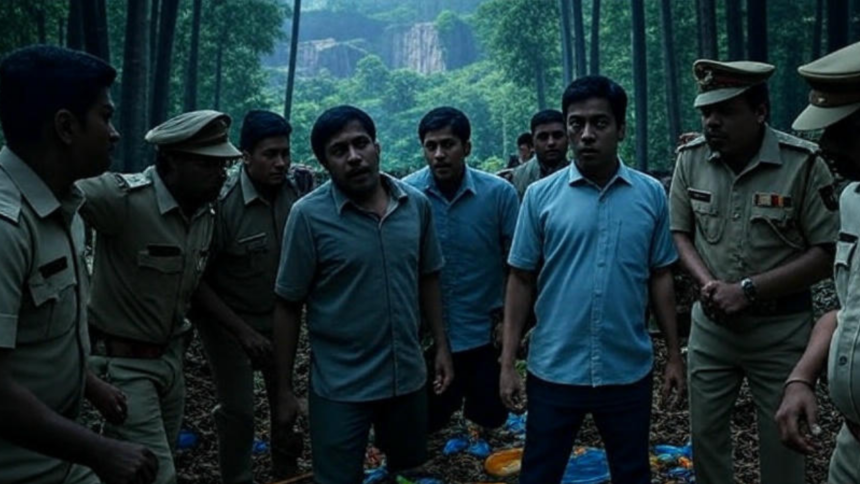On June 15, 2025, the Odisha police apprehended the key figure behind a daring heist of five tonnes of explosives by Maoists, an incident that had sent shockwaves across the state. The arrest took place in Rourkela, following a meticulous investigation into the May 27 looting of a vehicle near a stone quarry in Sundergarh district. The operation not only highlights the growing Maoist threat in the region but also underscores the challenges faced by law enforcement in tackling insurgency-related crimes in India’s mineral-rich hinterlands.
The mastermind, identified as George Munda, alias Kulu, a 43-year-old resident of Banko village under K Balang police station, was nabbed after weeks of intelligence gathering. According to DIG (Western Range) Brijesh Rai, Munda played a pivotal role in orchestrating the heist, acting as the primary conduit of information to the Maoists. Living directly opposite the quarry, Munda had long opposed its operations, which eventually led to its closure. His resentment, however, took a dangerous turn when he began collaborating with Maoist insurgents, providing them with critical intelligence about the movement of explosive-laden vehicles. On the day of the heist, Maoists intercepted a van en route to Banko quarry from Itma, making off with 200 packets of explosives, primarily gelatin sticks, intended for rock blasting.
The scale of the theft—five tonnes of explosives—raised immediate alarm bells. These materials, in the hands of Maoists, could fuel devastating attacks, potentially targeting infrastructure, security forces, or civilian populations. Odisha’s Director General of Police (DGP), Y B Khurania, took swift action, personally overseeing the response by flying to Rourkela and convening high-level meetings with senior officials. The state police, in collaboration with the Central Reserve Police Force (CRPF), CoBRA (Commando Battalion for Resolute Action), Jharkhand’s Jaguar unit, Odisha’s Special Operations Group (SOG), and District Voluntary Force (DVF), launched an extensive search operation in the dense forests straddling the Odisha-Jharkhand border.
On May 30, following a fierce gunbattle with Maoist rebels, security forces recovered a significant portion of the stolen explosives—3.8 tonnes—in a forest in Jharkhand, approximately three kilometers from the Odisha border. The recovery operation was a testament to the determination of the forces involved, but the remaining 1.2 tonnes of explosives are still unaccounted for, prompting ongoing search efforts. The police also established a Special Investigation Team (SIT) to probe the incident, with the National Investigation Agency (NIA) joining the effort due to the case’s national security implications.
Munda’s arrest sheds light on the complex dynamics of local grievances and insurgent collaboration. His opposition to the quarry, initially rooted in personal or community concerns, morphed into a dangerous alliance with Maoists, a group notorious for exploiting such discontent to further their agenda. DIG Rai revealed that Munda had met with Maoist operatives multiple times, passing vital intelligence about the quarry’s operations and the movement of explosive trucks. This collaboration enabled the Maoists to execute the heist with precision, highlighting the vulnerabilities in the transportation and storage of hazardous materials in insurgency-prone areas.
The incident has broader implications for Odisha, a state rich in minerals but plagued by Maoist activity, particularly in districts like Sundergarh, Malkangiri, and Koraput. The Maoists, often referred to as Naxalites, have long targeted the region’s mining and industrial operations, viewing them as symbols of state exploitation. The explosives heist underscores the need for tighter security protocols in such areas, as well as addressing the socio-economic grievances that fuel insurgent recruitment. While Munda’s arrest is a significant breakthrough, it also raises questions about the extent of Maoist networks and their ability to infiltrate local communities.
As the investigation continues, the Odisha police are focused on recovering the remaining explosives and dismantling the wider network that facilitated the heist. The operation has already yielded results, with 3.8 tonnes of explosives retrieved, but the threat remains as long as the rest are in Maoist hands. For now, Munda’s arrest marks a crucial step in curbing the immediate danger, but the larger battle against insurgency in Odisha’s heartland is far from over.





